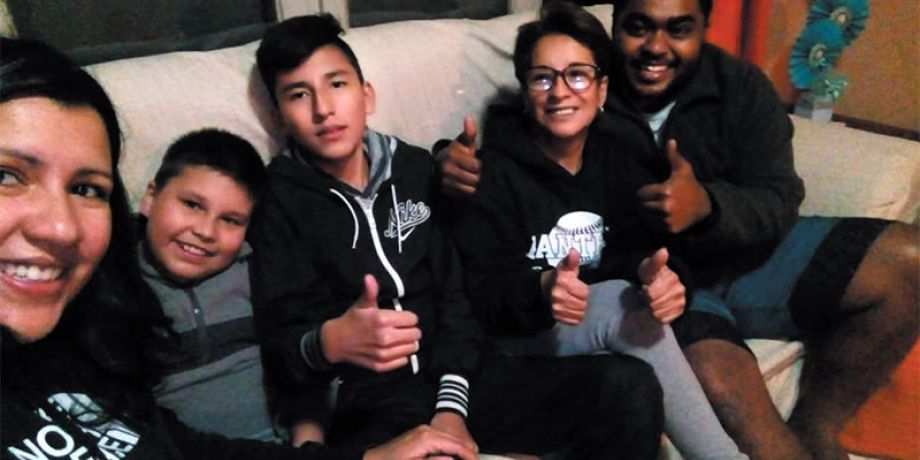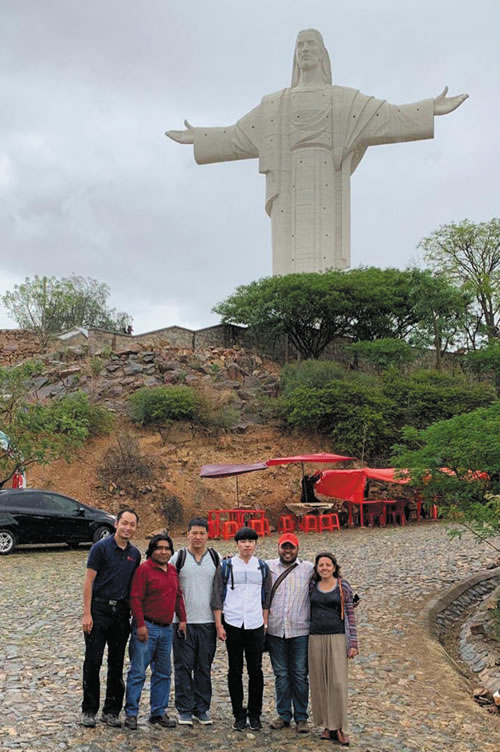
New Family
Living with a host family was a blessing for me. I lived with the family of Maria Rene Covarrubias Arze in Cochabamba, Bolivia. She is a widow who lives with her two daughters and three grandsons. My first three days with the host family were memorable, because I could not find the proper words to communicate with anyone. This was before my language classes began. Languages are much more than words and grammar. It implies a way of living and thinking.
 As days went by, I began to learn, words took root and started to make sense in my head. Therefore, living with the host family while studying the language motivated me a lot in my learning and understanding of the language. Personally, I felt that it was a great opportunity for me to participate in family traditions and routines. We had a daily timetable for dish washing after meals in the family which was really interesting. The daily interactions with my host family taught me a lot about the culture and traditions of the country I was in. I also was taught to share, explain and embrace the cultural differences. I tried to share some of the passions that I had with the family like cooking, singing, house-painting and repairs.
As days went by, I began to learn, words took root and started to make sense in my head. Therefore, living with the host family while studying the language motivated me a lot in my learning and understanding of the language. Personally, I felt that it was a great opportunity for me to participate in family traditions and routines. We had a daily timetable for dish washing after meals in the family which was really interesting. The daily interactions with my host family taught me a lot about the culture and traditions of the country I was in. I also was taught to share, explain and embrace the cultural differences. I tried to share some of the passions that I had with the family like cooking, singing, house-painting and repairs.
Most of all, I was able to embrace the experience with open arms as Maria Rene’s family heart was full of hospitality.
Moreover, I felt very much at home living with Maria Rene’s family. They welcomed me and treated me like a member of their family. I was invited to almost all the family events like birthdays, weddings and family gatherings. Maria Rene treated me as a son of the family. On a personal level, the experience of being a foreigner in another country during language studies was a wonderful one for me. Most of all, I was able to embrace the experience with open arms as Maria Rene’s family heart was full of hospitality.
Daily conversation was always the best way of practicing vocabulary. My host family helped me a lot with the language and in familiarizing myself with the context I was in. We conversed, exchanged opinions and joked usually during meal times. It is not easy trying to comprehend a new language but having to live and speak the language daily gave me a reliable way of learning the language. It was, in a sense, a matter of survival for me during my stay there because English and Fijian were not spoken at all. The spirituality of the Infant Jesus kept me going. It was through dependency on the Infant Jesus that I learnt a lot and was open to a new experience. I tried to grab every opportunity I could in understanding the language and culture, so that I could participate during conversations.
As an extrovert, my personality came to the fore, and I was eager to try out new things so as to fit in and be involved. Besides that, I was happy and contented with the family I was sent to for language studies. After five months of studying the language I would say it has given me a lot more confidence to talk and converse with others. I know that I am still trying to learn new words and phrases, here and there, now that I am in Peru. But I owe the experience of being able to understand the language to my professors and host family in Cochabamba.
We still stay in touch through social media from time to time. They really made my stay feel like a home away from home. It is always good to have a place where one is always welcomed. Having a second family in a different country is a blessing. Therefore, I would say that living with a host family, while learning a new language, is a valuable combination to have and a much appreciated opportunity, one to be thankful for.
Originally from Fiji, Columban seminarian Atonio Saula Tubena Seeto is living and working in Peru.